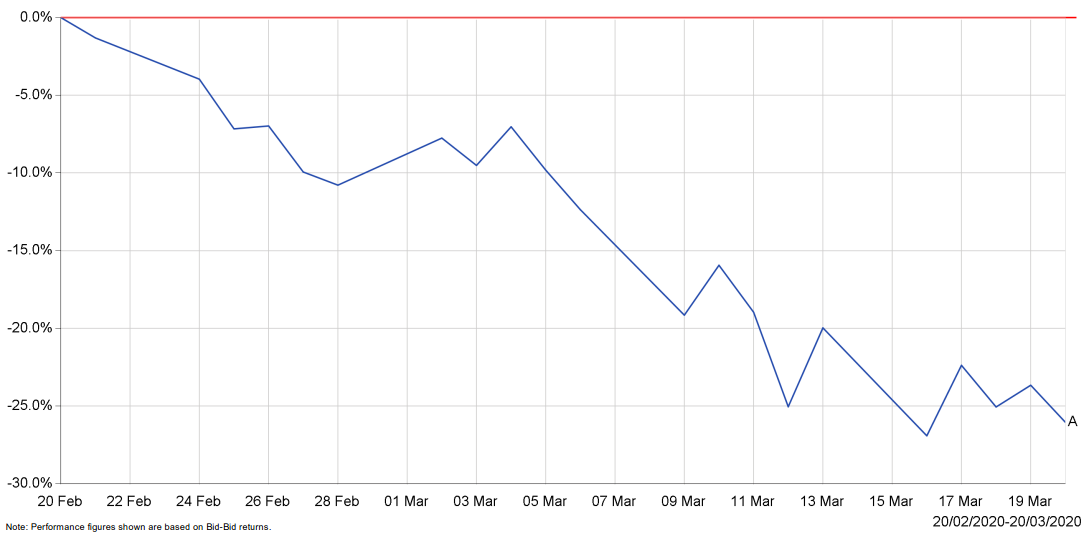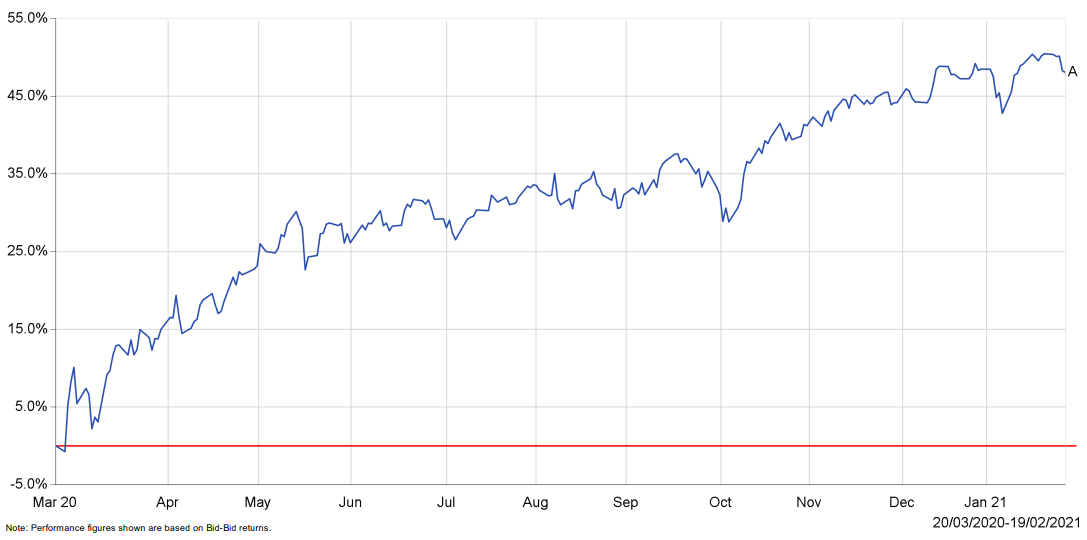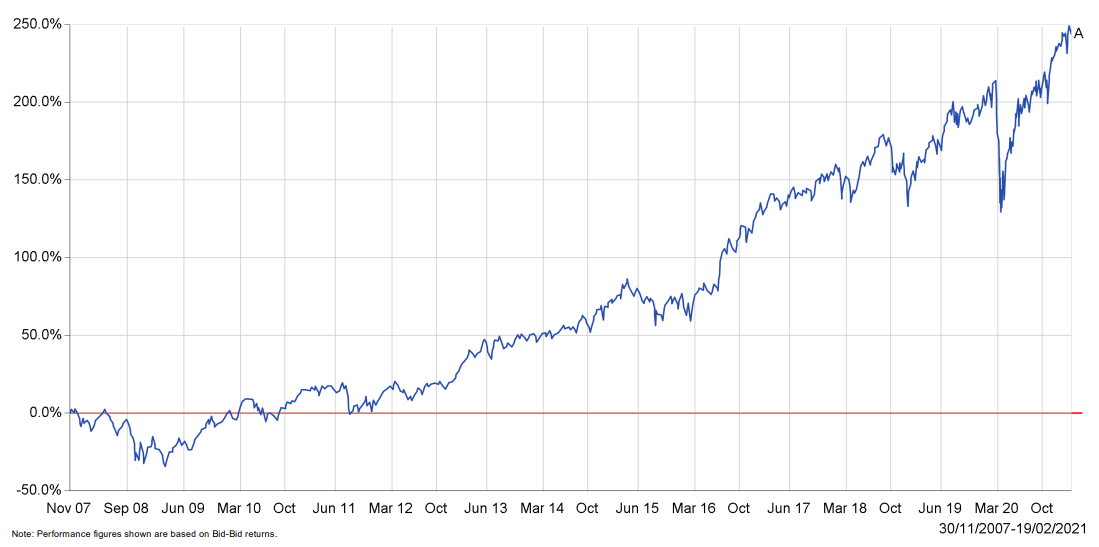I hope you didn’t run from the negative return
Life teaches us to have a certain humility - to not celebrate about being right too much, as it is normally followed up quickly with an impressive inaccuracy; broken clocks and all that.
However, in follow up to an article which I wrote just under a year ago about not running away from negative returns, it seems, *spoiler alert*, that the markets have proved me right. Now, this is not some inspired knowledge on my part, it is just part and parcel of long-term investing and I will look at how the markets have behaved over the past 12 months.
In March 2020, the international stock markets suffered two large crashes, the second causing the largest single-day percentage loss since 1987:

MSCI World ALL CAP – 20/02/2020 – 20/03/2020 performance of -26.00% (Source FE Analytics)
For those reliant on their investments as income, e.g. pensioners, watching over a quarter of your invested wealth disappear in a month was an alarming and painful experience. However, the worst thing you could have done was cut your losses and run because if you had, you would have lost out on the following eleven months, when the market rose by 48.06%:

MSCI World ALL CAP – 20/03/2020 – 20/02/2021 performance of +48.06% (Source FE Analytics)
Now if you re-read my original article, I didn’t predict such a strong return in the preceding 10 months from the global equity market. In fact, I said, “this should not be taken as a prediction that the stock market is going to recover imminently or that 2021 will offer record returns”.
I also can’t claim that being right about a market recovery was anything to do with me. Stock markets have a continuous pattern that short-term volatility always gives way to long-term growth.
Whilst the last 12 months has been a particularly bumpy ride in the global stock markets, when looked at in the context of the past 15 years, it looks far less dramatic and demonstrates the benefit of long-termism:

MSCI World ALL CAP – 30/11/2007 – 20/02/2021 (Source FE Analytics)
The peaks and troughs of the global investment market get smaller and smaller the further we take the timescale out. So, if you are still worrying about the month-to-month performance of your investments, in the words of Shakespeare, ‘that way madness lies’.
Instead, work out how much volatility is suitable for you:
- How much can you afford to lose? If you cannot lose the money and afford to let the market and your money recover, then it should not be invested.
- How much are you comfortable losing on a month-to-month / annual basis? As this article demonstrates, not pulling the plug on your investments when the market crashes is extremely important. So how much are you willing to lose before you get so uncomfortable that you bail on your strategy?
At Johnston Carmichael Wealth, the answers to those two questions are the most important for us before we start any conversation about assets, investment philosophies and performance; because, the strength of any investment strategy is that you will remain comfortable holding it over the long-term.
Once this strategy has been agreed then the volatility of even the past eleven months should be palatable to our clients. Indeed, for each strategy that our clients HAVE been in for the past eleven months, they have been rewarded for their patience with all our investment strategies showing a positive for the year:

JCW Strategies 3-8 - 20/02/2020 – 20/02/2021 (Source FE Analytics)
As with my previous article, I am not going to make any profound forecast of heightened volatility over the next twelve months or indeed make any market prediction, positive or negative, over what your investments will do in the short-term. This is because market volatility and periods of negative returns will always be a part of long-term investing. All I will say is that we are all allowed to be disappointed when investment returns are negative, we should just not be surprised by them or run from them as that is when we miss out on the long-term benefits of remaining invested.
To summarise, I am very pleased that my prediction about market recovery has proven true. However, as with investment returns, I am not going to take a short-term view about always being right. After all, I am still the same person who at 15 opted for blonde highlights, and instead will try and take a long-term view on both my decision making and investments.
Get in touch
If you would like to discuss this further, please don't hesitate to get in touch with a member of the Johnston Carmichael Wealth team or your usual Financial Planner.
Johnston Carmichael Wealth Limited is authorised and regulated by the Financial Conduct Authority.
Please note: This communication should not be read as financial advice. While all possible care is taken in the completion of this article, no responsibility for loss occasioned by any person acting or refraining from action as a result of the information contained herein can be accepted by this firm. This blog does not constitute investment advice or recommendations to buy or sell investments and you should not place undue reliance on such statements or returns, as actual returns and results could differ materially due to various risks and uncertainties.
Figures refer to the past and past performance is not a reliable indicator of future results. You may not get back the full amount of your investment.


